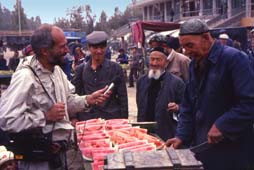 1987
1987 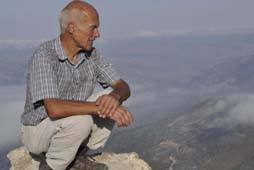 2009
2009 1987
1987  2009
2009This year, if all goes well, I’ll complete a journey that I started in 1987. I’d long been a fan of Marco Polo, and since reading the book of his travels I’d dreamed of following his footsteps across what he called Asia Minor to the deserts and mountains of Tartary and the Yellow Sea. In that year I spent six months pursuing my dream, and wrote about the trip in An Adventure on the Old Silk Road. But a significant chunk of the story was missing. In mid-1987 Britain and Iran had severed diplomatic relations and I was turned back at the Turkish–Iranian border.
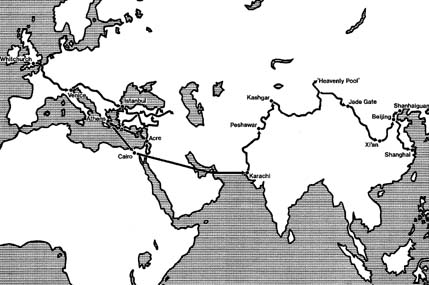 John’s route in 1987
John’s route in 1987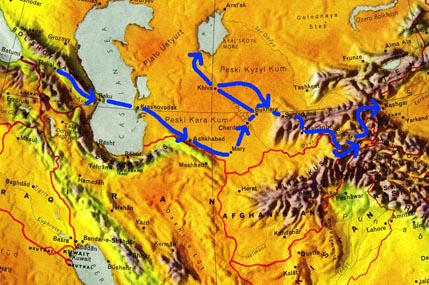 John’s route in 2011
John’s route in 2011In 1987 I had no alternative but to fly to Karachi and pick up the route on Pakistan’s north-west frontier, now the province of Khyber Pakhtunkhwa. This unplanned insight into life in the Pakistani tribal areas was a revelation, but for the next 20 years the missing Middle East section was nagging me. In 2009 I decided to put matters right by investigating four countries along Polo’s route – Lebanon, Syria, Iraq and Iran. Again it was a six-month journey and again Iran turned me away, this time because of unrest following their disputed election. After a cliff-hanging wait in Georgia and Armenia, they finally let me in and I finished the trip in the withering heat of the Persian Gulf.
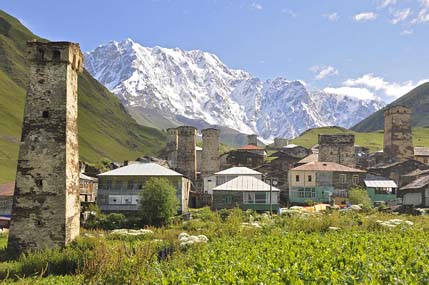 Caucasus village
Caucasus villageNow it’s time to close the final gap. On 24th May I’ll fly to the Georgian capital Tbilisi, then set off east through the Caucasus and across the Caspian Sea into the vast desert of Karakum. There I’ll call in on the carpet-trading centres of Khiva and Bukhara, before taking a train on the Trans-Caspian Railway to the greatest of all the Silk Road cities, Samarkand. Alexander the Great said of this, “Everything I’ve heard about it is true, except that it’s more beautiful than I ever imagined.” Carrying on eastwards, I’ll make the short hop to the Tajikistan capital Dushanbe, then head into higher mountains as I make my way towards the Afghan province of Badakhshan – Marco Polo’s fabled ‘Bactria’.
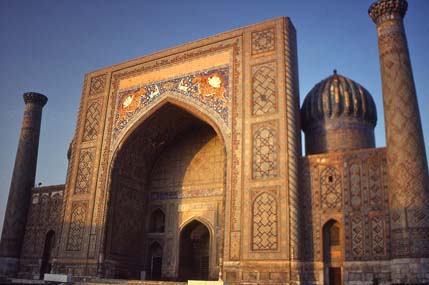 Samarkand
SamarkandNow will come the journey’s highlight and its greatest challenge – a month-long trip up Afghanistan’s so-called Wakhan Corridor to the headwaters of the historic River Oxus, now known as the Amu Darya. In the yak-herders’ village of Bozai Gumbaz I’ll spend a moment at the spot where Sir Francis Younghusband was arrested by Russians 120 years ago at the height of the ‘Great Game’, an incident which almost caused Britain and Russia to go to war. Then I’ll turn south towards the Boroghil Pass, a major crossing point from British India for Victorian explorers such as Younghusband and Lord Curzon, but today deserted.
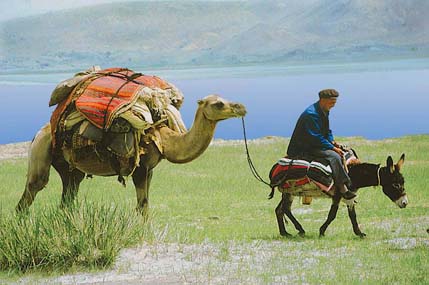 Pamir traveller
Pamir travellerThe valleys beyond here are the haunt of Taliban insurgents, so the Pakistani authorities have sensibly turned down my application for a special permit to cross this border. Instead, I’ll return to Tajikistan and head north across the High Pamirs to Kyrgyzstan, and from there over the Irkeshtam Pass to China.
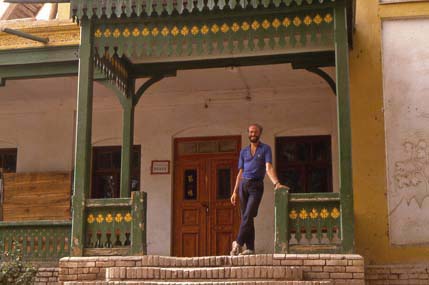 Chini Bagh in 1987
Chini Bagh in 1987I last set foot in Kashgar, China’s ‘Crossroads of Asia’, on my 38th birthday in September 1987. Twenty-four years later – quite possibly to the day – I’ll step back onto the porch of Chini Bagh, Kashgar’s one-time British consulate, and finish this long-running trip.
30th June 2011 – 27th July 2011 – 31st August 2011 – 22nd September 2011 – 13th October 2011
